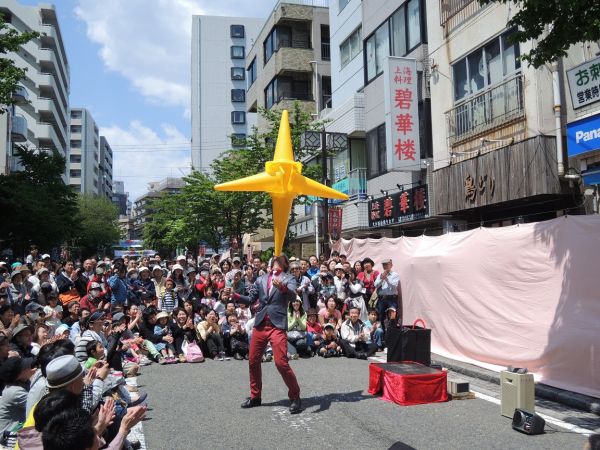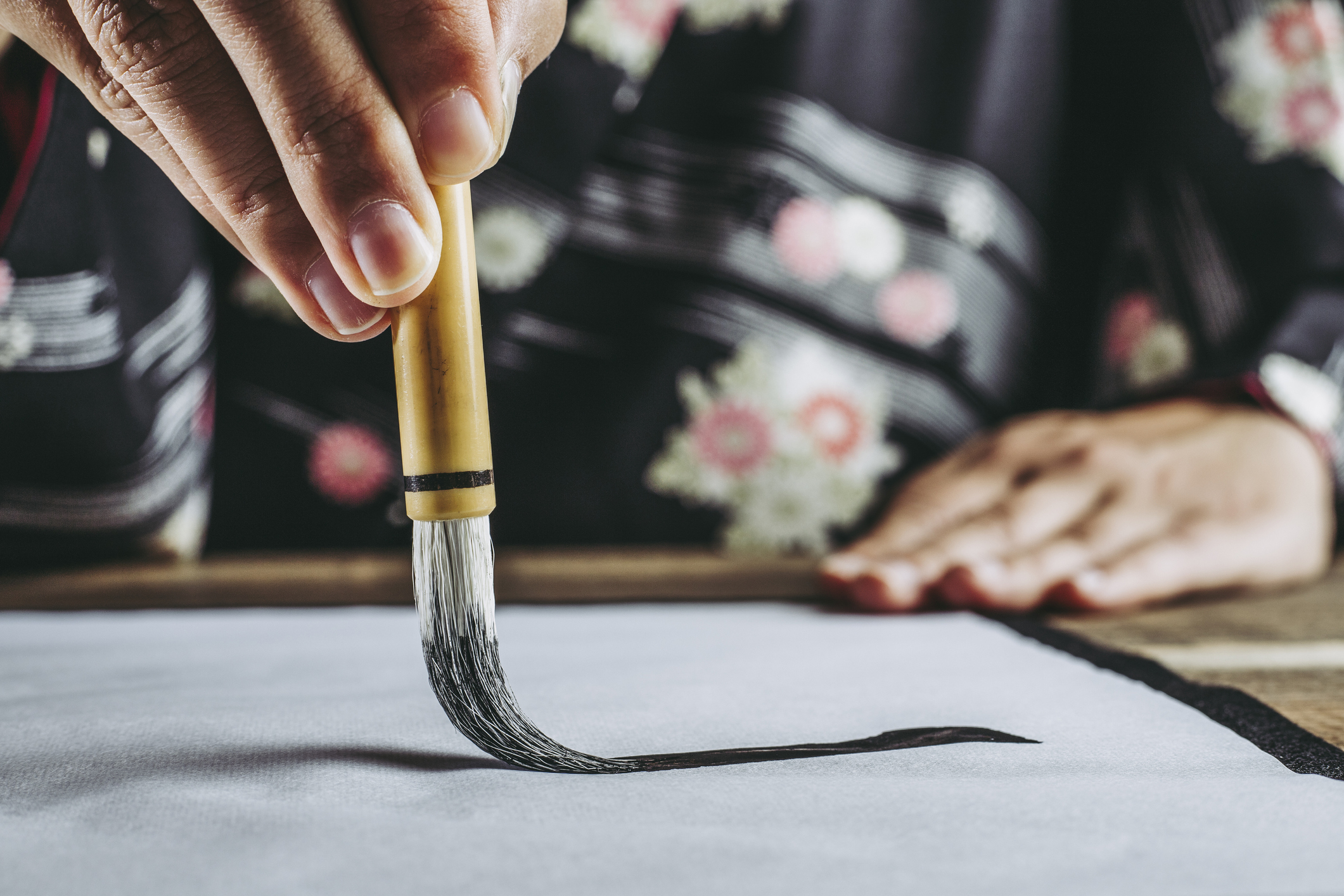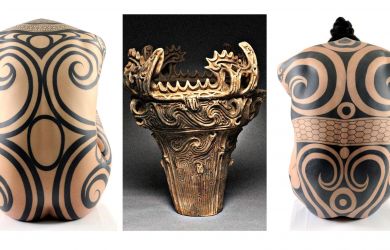
September 1, 2023
Based in Japan: Paul Masse
Street performing in Japan and a life of happy accidents
More than a veteran street performer who worked the streets of Yokohama for over two decades, Paul Masse is an artist with a passion for seeing people smile. Taking a chance to come to Japan to train in his beloved martial arts, Masse discovered that the only way to live his life was to live it enjoyably and consistently. From making Japan’s public light up with his audience-impacting street shows to his decision to embark on a martial arts career of encouraging people to keep going, Masse reveals to Metropolis why a life of happiness is the best life of all.

How does a person find themselves as a street performer in a foreign country?
Who knows how that works! I mean, I came to Japan for martial arts training. That was my motivation. I got a job as an English teacher but in my first year here I came across a street performer who blew my mind; he was making everyone around him so happy. It hit me that THAT is what I’d rather be doing. So for the next couple of years, while getting paid to literally do nothing at the school I worked at, I taught myself juggling skills and so on.
So all of your performing skills were developed in Japan?
All of it. I’m completely self-taught. Well, I had mentors and so on but, yeah, all self-taught. I didn’t start riding unicycles until I was 30 years old and my first attempt at juggling hammers had my hands all busted up. Oh man, that’s how it was but it was fun, too.
Now, it’s been almost 30 years since you first arrived in Japan. You’re about as long-term as you can get. How does that make you feel?
Do you know the story of Urashima Taro? It’s like that. I was walking along the beach, met a magic turtle who brought me down to his palace, spent a few lovely days there and when I came back I was old and grey. That’s how I feel. One day you just wake up and you realise it’s been a wonderful journey.

But there have been challenges, right, especially working as a street performer?
The hardest thing was making a show that people wanted to watch. That meant connecting with each member of the audience. People might not believe me but I’m actually a natural introvert so to become as extroverted as I seem was very difficult work for me. There were times when I’d hang my head down and seriously question if I was good enough but I kept going and eventually it all worked out.
After twenty-five years it certainly seems like it has.
Well, I had always wanted to do something with my life that brought a little bit of happiness to the world. Before I came to Japan, I worked in international finance and to me, that was just a racket. It was just non-stop taking and that’s not how I wanted to live my life. I think that’s why that first impression of that street performer was so powerful, he was making everyone around him feel happy and that resonated with me.
In what ways has living in Japan motivated your performances?
I suppose being non-Japanese in Japan was useful, especially as a performer. I think that’s helped a lot but I must say that the generosity and kindness of the Japanese people who’ve watched my shows has been very motivating. Their generosity allowed me to make a living.
How did you move past those times when you thought that maybe it was time to go back to America?
Hmm, wherever you go there are going to be challenges. Right? That’s just life. You’re never going to ‘be Japanese’ but there’s also freedom in that. So just keep going and something good will happen. Your way of thinking changes, opportunities present themselves, you take them…. If you just keep following your dream, then those earlier difficulties will fade away.

Your interest in art is extensive: calligraphy, pottery, martial arts. What’s the appeal for you there?
Well, that’s an extension of my martial arts study. My teacher would talk about these arts in relation to his own and so I’d explore them to get a further glimpse into everything. You have to remember that I’m in Japan for training. Everything I did, the street performing and all that, was so that I could train, and studying these other arts is part of that training.
I’ve heard that you may be giving up your street performing career to teach martial arts full time. Is this true?
Yep, that’s right. It’s been 25 years and I’ve had lots of fun but it’s time to hang up that part of my life. I think I can do better now for the world through martial arts. If you can help one person to overcome what is constraining them, to help them enjoy life, you’ve just changed the trajectory of everything. It’s amazing.
What advice do you have, if not for the next generation of street performers and artists, then for anyone who wants to set up shop here in Japan?
Just do it. If you really want to, come over and do it. Follow what you really want to do, follow what is tugging you. Follow that and you will have a life that is more unexpected than you could have believed but one that is just as rewarding.







